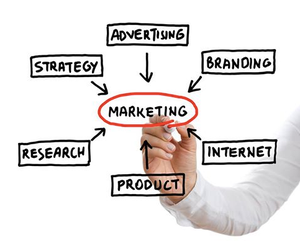Go-To Marketing Strategies for the Successful MSP
As a managed service provider (MSP), marketing is something your business most certainly needs to thrive, but it’s understandable that it may not be the No. 1 item on your to-do list. After all, you care about your customers and providing excellent technology and service--that’s the very nature of your business.
June 15, 2016

Sponsored Content
 As a managed service provider (MSP), marketing is something your business most certainly needs to thrive, but it’s understandable that it may not be the No. 1 item on your to-do list. After all, you care about your customers and providing excellent technology and service–that’s the very nature of your business.
As a managed service provider (MSP), marketing is something your business most certainly needs to thrive, but it’s understandable that it may not be the No. 1 item on your to-do list. After all, you care about your customers and providing excellent technology and service–that’s the very nature of your business.
It’s easy to miss a lot of the changes happening on the marketing side of things. Marketing as a skill is constantly evolving. Trying to keep up isn’t easy if you’re not primarily a marketer, but there are a few key strategies that are easy to implement as an MSP. The following marketing practices can help you protect, attract and grow your customer base.
Developing a Strategy Around Modern Marketing
First you need to develop a marketing strategy that embraces a mix of traditional approaches with modern tools and practices sprinkled in. Traditional marketing revolves around product, promotion, priceand place. Modern marketing digs even deeper by incorporating strategies like inbound marketing and outbound marketing. This may sound like a lot, but, depending on your business, you’ll develop a plan that only includes strategies unique to your goals.
As you create your marketing plan, think about your ideal customer profile. Once you’ve developed these personas, you can better determine which direction your marketing should be going in. Industry databases like Hoovers are helpful in identifying companies that match your prospect profile.
Once you’ve got your personas down, it’s time to start utilizing inbound and outbound marketing tactics.
Inbound vs. Outbound
Inbound and outbound are more than common marketing buzzwords. They can create the foundation of your entire marketing plan.
If you’re looking to utilize inbound, this means you’ll be creating a lot of content. Content can include:
Blog posts: Short reads that signify thought leadership on topics relevant to your business
Case studies: Tells a customer story that prospective clients can relate to
White papers: Nitty-gritty pieces that formally outline information
eBooks: Long-form content pieces like white papers, but more conversational
All of your content should be designed with your ideal customer in mind. What do they want to learn about? How can you keep them coming back for more? What’s the tie to your overall business? These are questions to keep in mind when publishing new content.
Outbound marketing takes a more old-school approach. Your outbound strategy includes:
Referrals: Winning customers is easier when they’ve heard rave reviews from someone else
Events: Brings together an ecosystem of current and potential clients to discuss and learn from one another
Newsletters/emails: Keeps your customers in the loop about new products without being too sales-y
Talks/presentations: Places your business in the spotlight to leave lasting impressions on relevant audiences
Outbound marketing is effective in putting you face to face with your prospective and current customers. This kind of strategy has long been successful. Before the digital age, your referral rate could make or break you! Today, the personal touch that outbound offers is still just as important.
More than anything, customers want to feel like their best interests are being cared for. Coupled with inbound marketing, outbound will always be an important piece of the marketing puzzle.
A hybrid marketing plan that encompasses both inbound and outbound is where IT professionals are finding the most success. Once you have a plan in place, measuring your results is key in helping you make that plan as effective as possible. Interested in learning how to do that? Check out the eBook “Marketing Made MSPeasy: The MSP’s Ultimate Guide to Marketing.”
Christine Gassman is Manager of Partner Development at Datto Inc.
You May Also Like
